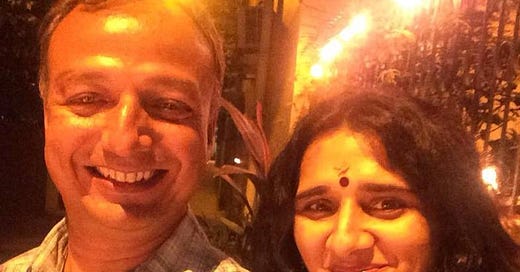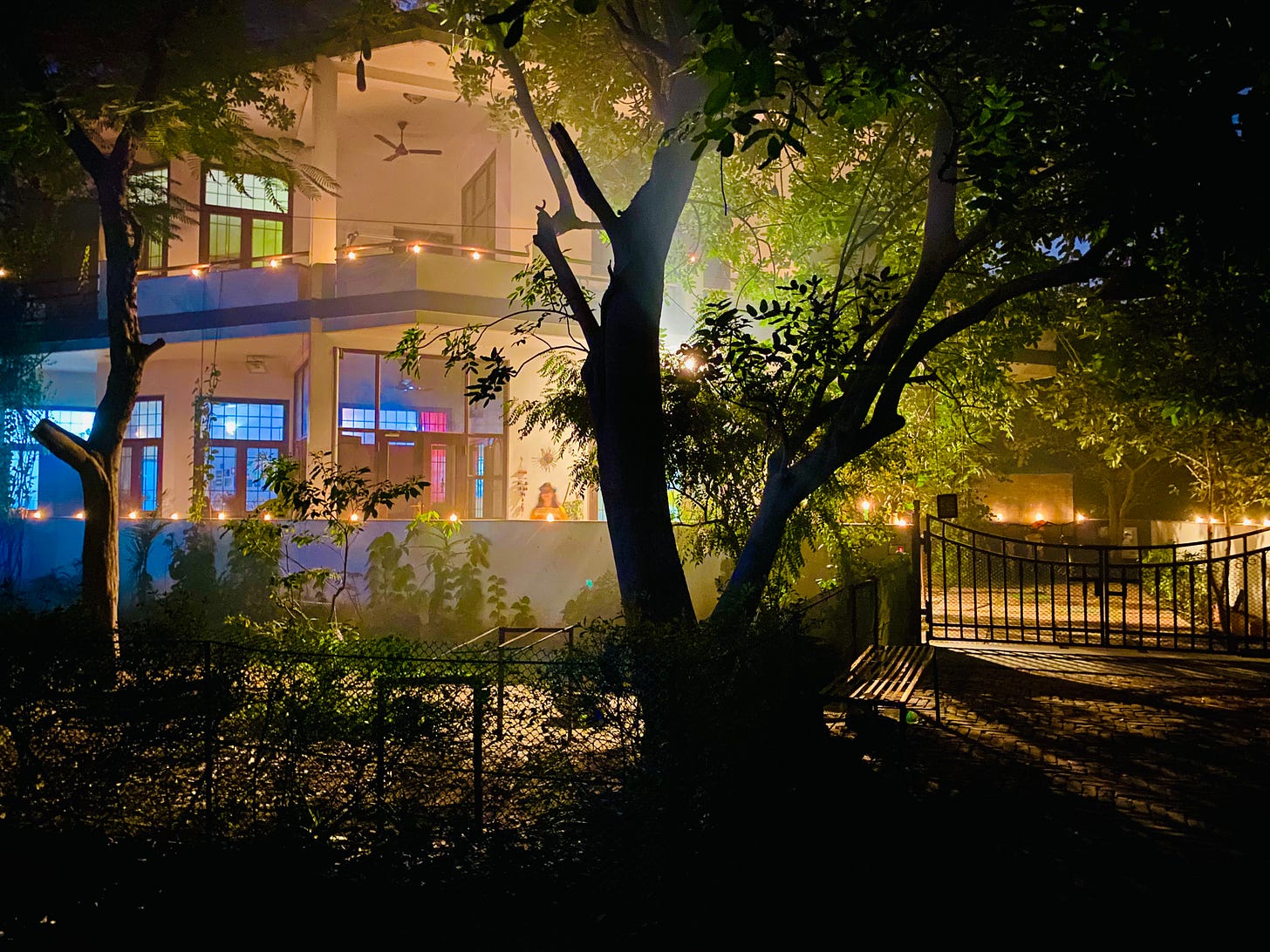Lessons from the many Diwalis of my life
Just like that Afzal and I discovered that we were safe with our families.
It must have been the third Diwali after our marriage. Ammi, my mother-in-law was visiting us along with Shireen, my sister-in-law’s teenage daughter. Afzal and I used to live in a flat close to the home of my parents in New Delhi at that time.
Unlike me, who is somewhat unenthusiastic about the rituals associated with festivals, Afzal has a strong cultural and social bond with every north Indian festival. Having grown up in his village and other towns in east Uttar Pradesh, his lived experience of festivals as a time for bonding with the neighbourhood and its diverse communities is the map that guides him.
That year both Afzal and I were a little unsure about what to expect on the evening of Diwali, when both his mother and my parents were near us. Unusually for him, Afzal was at a bit of a loss about how best to ensure that all the elders in his life remained at ease. His Muslim Ammi and my Hindu Mummy and Papa.
When in doubt about how to proceed, my intuitive strategy is to first decide what I will wear. Make yourself look good, that will make you feel good, and all the rest of the decisions will fall in place one by one. Create an artful exterior and half the work will get done on its own.
I decided to wear a saree, a choice that was also guided by the fact that Ammi loved to see me dressed up, in the same way that my daughters cheer me now. By the time I emerged from my room, I discovered that Ammi had taken the same decision and was wearing a saree too. She had dressed up for Diwali and she giggled when I complimented her on how good she looked.
“Hurry up, we must go and greet your parents on Diwali now,” she said to us. On the way, she told me about Diwali evenings in Jaunpur, where she used to live with her parents when her children went to school in the city. I heard the names of Afzal’s teachers, his school friends and the doctors and other Hindu neighbours of the family. When we reached my parents’ home, Ammi led the way by taking a place near the pooja arrangements my father had made. She folded her hands in her lap. Shireen sat next to her grandmother and Sahar, our toddler settled in Shireen’s lap.
That year, the Diwali pooja in my family was led by Dadaji, my grandfather who started the proceedings with the singing of the bhajan, ‘Om jai jagdish hare, swami jai jagdish hare…’
Everyone closed their eyes and my brothers and I tried to keep up as best as we could since we only sing this song once a year. As we moved to the second stanza of the bhajan, we realised that the loudest, surest voice in the room belonged to Shireen. I opened one eye to confirm and then closed it again to allow my own memory to guide me with the rest of the bhajan.
“I sing it every year at Kapoor Aunty’s home on Diwali,” Shireen told us by way of explanation after the pooja was over. Shireen had grown up in a neighbourhood in Hazratganj in Lucknow and was pleased with the admiration she was receiving from my family. She was as much at ease singing a bhajan, as she was singing hymns she had learnt in her convent school and offering Namaz as her mother had taught her.
Just like that Afzal and I discovered that we were safe with our families. We didn’t have to worry about inadvertently offending anyone, because everyone who mattered was already ahead of us to make sure that both of us were comfortable in the spaces were trying to create together.
Nearly fifteen years later, it was Diwali again in 2021 and I found myself out of sorts for other reasons. Afzal was travelling and could not be with us. After the incessant losses endured through the Covid-19 pandemic, I found myself with little energy on Diwali morning. I couldn’t stop thinking of Surekha, my friend who died in India’s mis-managed brutal second wave in 2021. Surekha was a Diwali enthusiast and her preparations for the festival would inspire many of us.
“I wish Papa was here,” our oldest daughter said in the middle of the day. “He would make it alright,” she said referring to the gloom we seemed to be unable to shake off.
The siblings decided to dress up and then decorate the house with the candles we had bought. I had already arranged flowers inside.
My mother called in the evening and announced that they had taken an impromptu decision to come over to us, since we couldn’t visit them. I checked my phone as I announced the news to my daughters and found that Surekha’s husband had sent me a photo of a beautiful rangoli made by their daughter on this first Diwali without her mother.
That’s all it took to change things for us. I thought of Ammi, my mother-in-law, who is no longer with us. I let Surekha’s child guide me. Diwali isn’t just about cleaning up homes and lighting diyas. It is also a time to dust off sorrow and allow the light of those who have loved us guide us away from despair.
🪔🪔🪔🪔🪔
A version of this essay was first published here








Just beautiful. Thank you for writing❤️
Diwali isn’t just about cleaning "up homes and lighting diyas. It is also a time to dust off sorrow and allow the light of those who have loved us guide us away from despair." I read this now, the day after Diwali, thankful for the family I spent it with, but deeply mourning the ones who weren't with me. It hasn't stopped my crying yet, but I'll get there. Thank you, Natasha